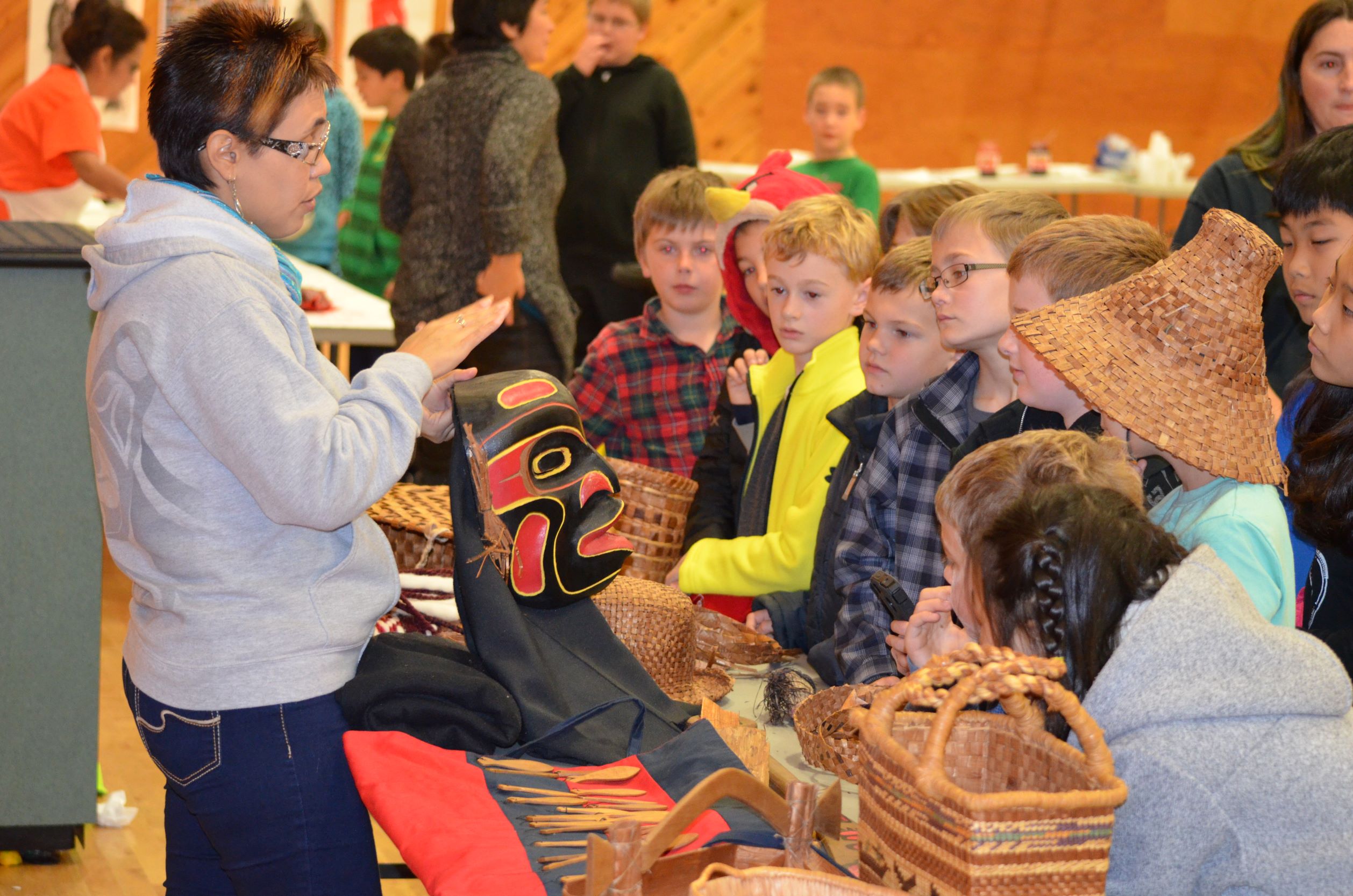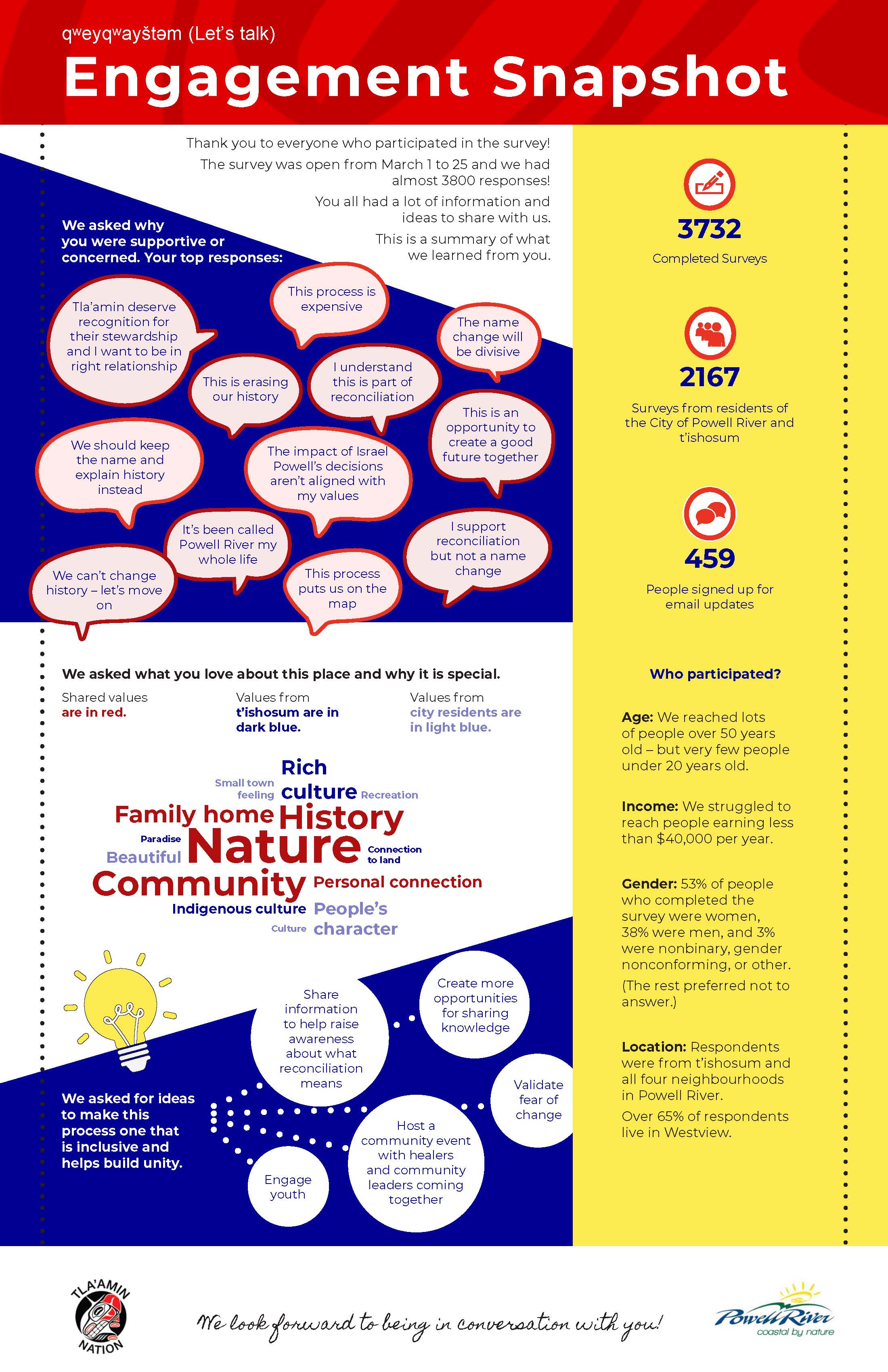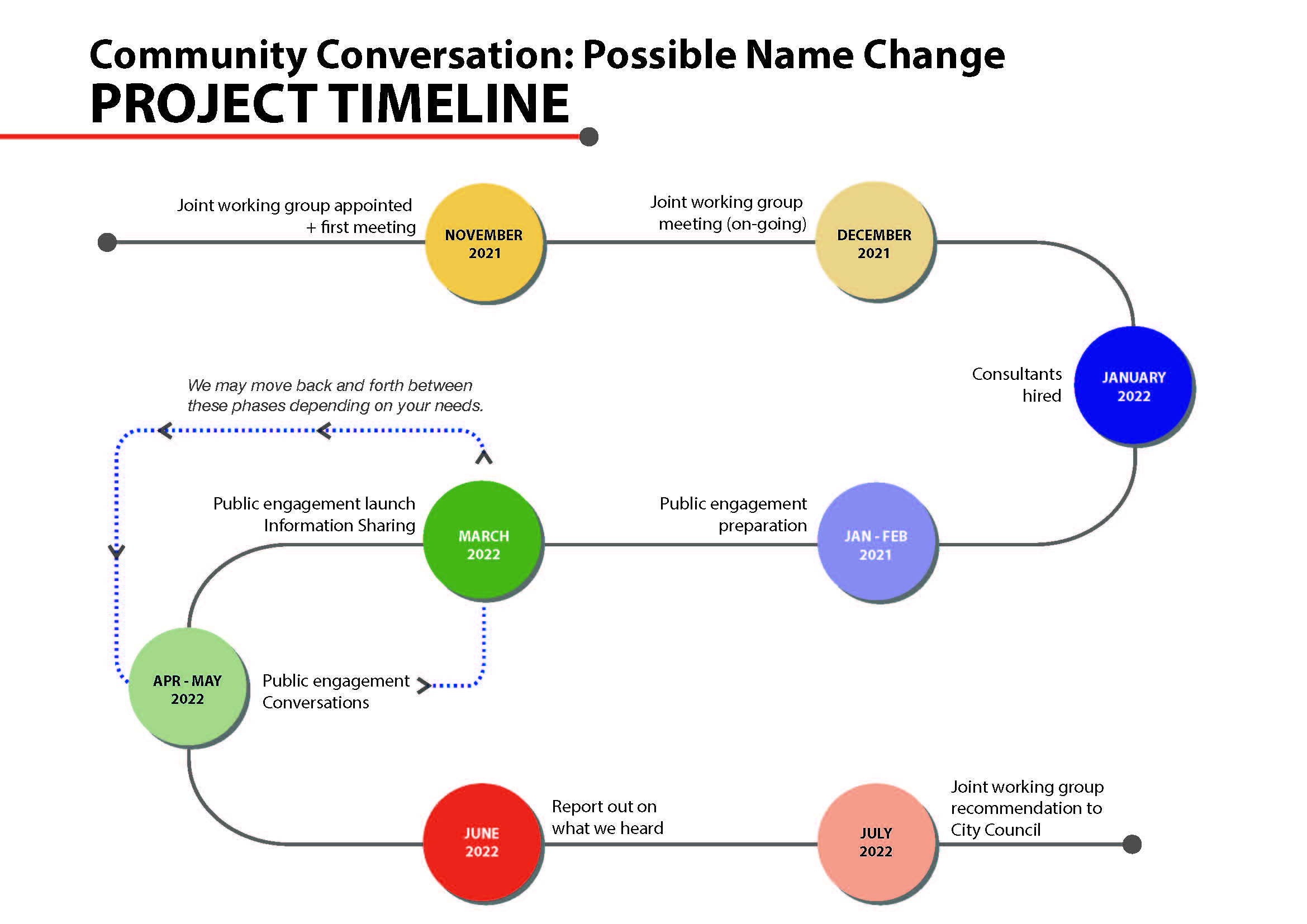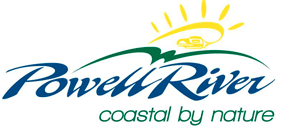for Council and committees
Contact info, bios, and more
Engagement Process

Thank you for being curious
In this process so far, we’ve had information sharing through the open houses, the website, and the walking tours. We’ve also heard opinions and questions from the public through letters to the joint working group, open mic events, events at the high school, and some of the community events we’ve been invited to.
Thank you to everyone who joined us on the first phase of this journey. We knew this would be challenging. Thank you for remaining curious with us as we explored our history, place names, what reconciliation looks like, and where this might lead us. And thank you for your passion. It is clear we all care deeply about this place we call home.
What’s next?
This phase is coming to an end. We’re taking a moment to pause and consider what we’ve learned up until now.
The consultants will write a report to the Joint Working Group and the Joint Working Group will write their own report with recommendations to City Council. This is anticipated in July.
If you missed the June 6 deadline for emailing the Joint Working Group, you are always welcome to send a letter to council: info@powellriver.ca
Posters about place names, local history, reconciliation, and residential schools
These materials were displayed at Open House events in April 2022:
City of Powell River and Tla’amin Nation in relationship, and We Are LEADERS!
Canadian History of Residential Schools, and Tla’amin Experience with Residential Schools
Traditional Place Names of the Tla'amin Nation
Between 2016 and 2018 the qathet Museum & Archives partnered with the Tla'amin Nation to document, map, and develop a database of traditional place names within the region. The results of this project can be experienced in person at the qathet Museum & Archives, at the Tla’amin Government House, and online on the City of Powell River website.
Engagement Summary
Thank you to everyone who participated in the survey. We received almost 3800 completed surveys. A very high level summary of what we heard is presented below. More engagement outcomes will be shared once we’ve completed an analysis of your feedback. We are using the outcomes of this survey to design upcoming events.

Our hopes for engagement
We don’t know what the outcomes of our conversations together will be. We do know that:
We may not always get things right. We are going to do our best and we welcome your feedback about how we might do better - we are here to learn, and we need your help.
We want you all to feel you have a place in this conversation and we want you to be included in a way that you feel welcome to share your thoughts, ideas, questions, and concerns.
This is an opportunity to learn about an important part of our national and regional history that many of us did not learn about in high school.
Having conversations about the name of our city is one way we can move towards reconciliation, but it will not end our reconciliation journey.
This process is not meant to erase the past, but to create a brighter future.

